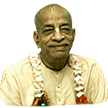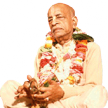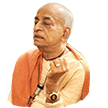Controlling the Mind - an essential subject: Difference between revisions
(Created page with "Category:Essential Subjects <!----------------------- edit below this line -----------------------> <!------------------------ begin introduction text below --------------...") |
(Vanibot #0041: Moves Choose Another box to the end) |
||
| Line 2: | Line 2: | ||
<!----------------------- edit below this line -----------------------> | <!----------------------- edit below this line -----------------------> | ||
<!------------------------ begin introduction text below ------------------------> | <!------------------------ begin introduction text below ------------------------> | ||
It is said that an experienced mystic attains full control of the senses and the mind by controlling the breathing process. Therefore, controlling the breathing process is not the ultimate aim of yoga. The real purpose of yogic performances is to control the mind and the senses. Anyone who has such control is to be understood to be an experienced, mature mystic yogī. It is indicated herein that a yogī who has control over the mind and senses has the actual benediction of the Lord, and he has no fear. In other words, one cannot attain the mercy and benediction of the Supreme Lord until one is able to control the mind and the senses. This is actually possible when one fully engages in Kṛṣṇa consciousness. A person whose senses and mind are always engaged in the transcendental service of the Lord has no possibility of engaging in material activities. | |||
Srila Prabhupada's books, lectures, conversations and letters offer a comprehensive presentation of this essential subject as seen in the Vaniquotes '''[[Vaniquotes:Category:Control the Mind|Controlling the Mind]]''' category. An introduction from his books is given below in the following | Srila Prabhupada's books, lectures, conversations and letters offer a comprehensive presentation of this essential subject as seen in the Vaniquotes '''[[Vaniquotes:Category:Control the Mind|Controlling the Mind]]''' category. An introduction from his books is given below in the following 9 quotes. | ||
<!-------- end introduction text and don't touch next three lines ---------> | <!-------- end introduction text and don't touch next three lines ---------> | ||
== Quotes from Srila Prabhupada's books == | == Quotes from Srila Prabhupada's books == | ||
<!----------------- edit quote boxes below this line -----------------> | <!----------------- edit quote boxes below this line -----------------> | ||
{{VaniQuotebox| | {{VaniQuotebox|Arjuna said in the Bhagavad-gita that controlling the mind is as impractical as stopping the blowing of a hurricane| Arjuna said in the Bhagavad-gītā that controlling the mind is as impractical as stopping the blowing of a hurricane. Sometimes the mind is compared to a maddened elephant. Without following the direction of a spiritual master one cannot control the mind and the senses. In other words, if one practices yoga mysticism and does not accept a bona fide spiritual master, he will surely fail. He will simply waste his valuable time. '''(Kṛṣṇa Book, Chapter 87)'''}} | ||
{{VaniQuotebox| | {{VaniQuotebox|As it is necessary for one to become very active in family life, similarly, after retirement from family life, it is necessary to control the mind and senses. This is possible when one engages himself fully in the devotional service of the Lord|As it is necessary for one to become very active in family life, similarly, after retirement from family life, it is necessary to control the mind and senses. This is possible when one engages himself fully in the devotional service of the Lord. Actually the whole purpose of the Vedic system, the Vedic social order, is to enable one to ultimately return home, back to Godhead. The gṛhastha-āśrama is a sort of concession combining sense gratification with a regulative life. '''(Śrīmad-Bhāgavatam 4.23.4)'''}} | ||
{{VaniQuotebox| | {{VaniQuotebox|Control the mind and train oneself to be situated in faithful devotional service| Yama and niyama mean practicing the controlling process by following strict regulations, and āsana refers to the sitting postures. These help raise one to the standard of faithfulness in devotional service. The practice of yoga by physical exercise is not the ultimate goal; the real end is to concentrate and to control the mind and train oneself to be situated in faithful devotional service. '''(Śrīmad-Bhāgavatam 3.27.6)'''}} | ||
{{VaniQuotebox| | {{VaniQuotebox|For a man in the practical world who has to fight so many opposing elements, it is certainly very difficult to control the mind|The mind is so strong and obstinate that it sometimes overcomes the intelligence, although the mind is supposed to be subservient to the intelligence. For a man in the practical world who has to fight so many opposing elements, it is certainly very difficult to control the mind. Artificially, one may establish a mental equilibrium toward both friend and enemy, but ultimately no worldly man can do so, for this is more difficult than controlling the raging wind. '''(Bhagavad-gītā 6.34)'''}} | ||
{{VaniQuotebox| | {{VaniQuotebox|In the pursuit of self-realization, one has to follow many rules and regulations to control the mind and the senses and to concentrate the mind on the self. All these procedures are very difficult, bitter like poison|In the pursuit of self-realization, one has to follow many rules and regulations to control the mind and the senses and to concentrate the mind on the self. All these procedures are very difficult, bitter like poison, but if one is successful in following the regulations and comes to the transcendental position, he begins to drink real nectar, and he enjoys life. '''(Bhagavad-gītā 18.37)'''}} | ||
{{VaniQuotebox| | {{VaniQuotebox|It is very difficult to control the mind and senses without being fully Krsna conscious| Even Viśvāmitra, a great sage and perfect yogī, was misled by Menakā into sex enjoyment, although the yogī was endeavoring for sense control with severe types of penance and yoga practice. And, of course, there are so many similar instances in the history of the world. Therefore, it is very difficult to control the mind and senses without being fully Kṛṣṇa conscious. Without engaging the mind in Kṛṣṇa, one cannot cease such material engagements. '''(Bhagavad-gītā 2.60)'''}} | ||
{{VaniQuotebox| | {{VaniQuotebox|One should control the sitting posture, regulate the breathing process by the yogic pranayama and thus control the mind and senses and with intelligence apply the mind to the gross potencies of the Lord|Śukadeva Gosvāmī answered: One should control the sitting posture, regulate the breathing process by the yogic prāṇāyāma and thus control the mind and senses and with intelligence apply the mind to the gross potencies of the Lord (called the virāṭ-rūpa). | ||
The materially absorbed mind of the conditioned soul does not allow him to transcend the limit of the bodily conception of self, and thus the yoga system for meditation (controlling the sitting posture and breathing process and fixing the mind upon the Supreme) is prescribed in order to mold the character of the gross materialist. '''(Śrīmad-Bhāgavatam 2.1.23 )'''}} | |||
{{VaniQuotebox| | {{VaniQuotebox|The best way to control the mind is to engage it always in Krsna consciousness (sa vai manah krsna-padaravindayoh)|The mind is the original cause of material bondage. It is followed by many enemies, such as anger, pride, greed, lamentation, illusion and fear. The best way to control the mind is to engage it always in Kṛṣṇa consciousness (sa vai manaḥ kṛṣṇa-padāravindayoḥ (SB 9.4.18)). Since the followers of the mind bring about material bondage, we should be very careful not to trust the mind. '''(Śrīmad-Bhāgavatam 5.6.5)'''}} | ||
{{VaniQuotebox|The brahmacaris, or students under the care of a bona fide spiritual master, control the mind by abstaining from sense gratification. A brahmacari hears only words concerning Krsna consciousness|Since human life is not meant for our enjoying sense gratification like the animals, the four orders of human life are so arranged that one may become perfect in spiritual life. The brahmacārīs, or students under the care of a bona fide spiritual master, control the mind by abstaining from sense gratification. A brahmacārī hears only words concerning Kṛṣṇa consciousness; hearing is the basic principle for understanding, and therefore the pure brahmacārī engages fully in harer nāmānukīrtanam—chanting and hearing the glories of the Lord. '''(Bhagavad-gītā 4.26)'''}} | |||
<!----------------- edit quote boxes above this line -----------------> | <!----------------- edit quote boxes above this line -----------------> | ||
| Line 30: | Line 33: | ||
'''Controlling the Mind - [[Vaniquotes:Category:Control the Mind|explore more within this category]]'''. | '''Controlling the Mind - [[Vaniquotes:Category:Control the Mind|explore more within this category]]'''. | ||
{{EsentialSubjectTotal}} | {{EsentialSubjectTotal}} | ||
<div style="float:left;"> | |||
{{EssentialSubjectnav}} | |||
</div> | |||
__NOTOC__ | __NOTOC__ | ||
__NOEDITSECTION__ | __NOEDITSECTION__ | ||
Latest revision as of 16:02, 22 November 2020
It is said that an experienced mystic attains full control of the senses and the mind by controlling the breathing process. Therefore, controlling the breathing process is not the ultimate aim of yoga. The real purpose of yogic performances is to control the mind and the senses. Anyone who has such control is to be understood to be an experienced, mature mystic yogī. It is indicated herein that a yogī who has control over the mind and senses has the actual benediction of the Lord, and he has no fear. In other words, one cannot attain the mercy and benediction of the Supreme Lord until one is able to control the mind and the senses. This is actually possible when one fully engages in Kṛṣṇa consciousness. A person whose senses and mind are always engaged in the transcendental service of the Lord has no possibility of engaging in material activities.
Srila Prabhupada's books, lectures, conversations and letters offer a comprehensive presentation of this essential subject as seen in the Vaniquotes Controlling the Mind category. An introduction from his books is given below in the following 9 quotes.
Quotes from Srila Prabhupada's books
Controlling the Mind - explore more within this category.
Vanipedia has now over 903 introductory articles compiled from Srila Prabhupada's books under the series titled Essential Subjects. All these articles can be seen in the Table of Content on the right side of this article and also here in this Umbrella Category. Browse through them to relish the breadth and depth of Srila Prabhupada's teachings - There is a subject for everyone.







